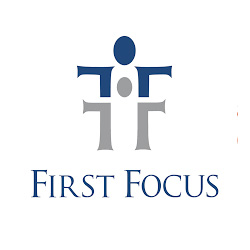If you would like to read this blog post offline, please scroll to the bottom to download a copy of the PDF version!
During the third week of November, we held a focus group with Dreamers and children of immigrant parents to discuss what health care looked like while they were growing up. As they undocumented children, children in mixed status families, and in immigrant families they shared the same concerns and understanding of what it meant to obtain health care.
The similarities we heard were:
- using community health centers and learning their limitations
- mistrusting systemic entities like hospitals and government
- the lack of understanding of health care and learning it as adults
- cultural competency from health care professionals
- how care was accessed
Community Health Clinics
One individual mentioned a story of growing up with migraines that touched on the importance of all these pieces especially from obtaining care from local community clinics. She grew up as an undocumented immigrant child and is now a Permanent Resident. She said:
I grew up with migraines and I had them since I was 7. I never knew what they were, and my mom didn’t know what they were either. They would put an onion to my head [as a home remedy to help alleviate the pain]. I didn’t have a primary doctor, and I remember going in a couple of times each time and told them I had pain but, they would give me over the counter Advil. I remember looking at the TV and a commercial about migraines [came on] and they were listing the symptoms like sensitivity to light, the nausea, the severe pain, and I remember going “That’s what I have!” Basically, diagnosing myself and the next time I went to the doctor I told him I was having migraines, but he didn’t prescribe anything but, it really wasn’t until last year that I got an actual prescription because of the stigma around prescription drugs.
Mistrust and Fear
One of the most important pieces highlighted at the end was this notion that “I still have that message engrained in my brain not to trust the system.” A mistrust within immigrant families to seek health care services because of fear. “And fear of course we are still undocumented so its scary to put your name out there…” ‘A[fear] now and since when we were kids. It still hasn’t gone away because I’m still undocumented it isn’t as scary, but [the fear] still doesn’t go away.” Given the climate of fear and hostility that has grown within this last year, these feelings continue to linger with these young adults even as they have integrated into Utah and all have either DACA, Legal Permanent Residency, or are U.S. citizens. This is especially important because of the new Public Charge Rule that may drastically change the way immigrant families seek services, scaring them away from public benefits that they qualify for and fearing that their information may be used against them.
Mistrusting the health care system and giving information was also a major concerned discussed by all participants as one highlighted as they discussed the barriers they faced when their parents sought out services for them as children, “If we don’t have someone we can trust (neighbor, family, friend) we don’t have that accessibility or knowing where to get that information [then we won’t seek health care services]”
Understanding Healthcare
An interesting point was mentioned by a participant about what it has meant to have grown up without health insurance now as an adult. She said, “You don’t know who to really talk to and because you grew up not thinking it was necessary, it really does impact you as an adult” She mentioned feeling like there’s a “big gap of knowledge” that she has been trying to fill now as adult navigating health care. Another person mentioned, “I do think it’s funny that my first physical was at 26” because she is DACAmented and obtained private health insurance from her wife’s plan. This is consistent to other trends that emphasize about health care coverage during childhood is important and just as important is having health care coverage for parents, it is also good for children and the “welcome mat” effect.
Another participant mentioned she worked at a community clinic now and continues to see a trend in the misunderstanding and lack of knowledge when it comes to health care for Latino and immigrant families. She said, most families, call the clinic their medical and dental home even if it might not be. There is a gap between understanding that having a medical home means having the same head doctor every time.
Cultural Competency
The cultural competency piece was important to highlight, because health coverage is only the first step to filling the gaps for health care in Utah. One participant mentioned that “[it] doesn’t feel like a welcoming place” even now as adults” and “frustration with the cultural knowledge of health care providers where they make assumptions based on my background.” Even as adults many of these feelings still linger from childhood and now that they understand, are much better able to advocate for themselves within the healthcare system.
How care was accessed
A reoccurring theme throughout the conversation was the amount of times “our moms were our doctors. Where many of them recall their mothers giving them traditional home remedies and not taking medications until necessary. The six participants mentioned they grew up without a head doctor and without regular wellness check-ups unless they were done within a school setting.
100% Kids Coverage Campaign
Each of the six participants gave so many examples of what it was like growing up without health insurance and the barriers they continue to face today because they didn’t grow up understanding the importance of health care with regular check-ups, how to use insurance, and navigating health care in places that don’t always feel welcome.
This focus group gave insight on the difference that health insurance would have made for each of them as children. We hope that more children can access care with our 100% Kids Coverage Campaign. Join us to make sure more young people can access the care they need and can grow up to be the thriving adults they are meant to be.
Ciriac Alvarez Valle
Health Policy and Community Engagement Fellow
Voices for Utah Children






